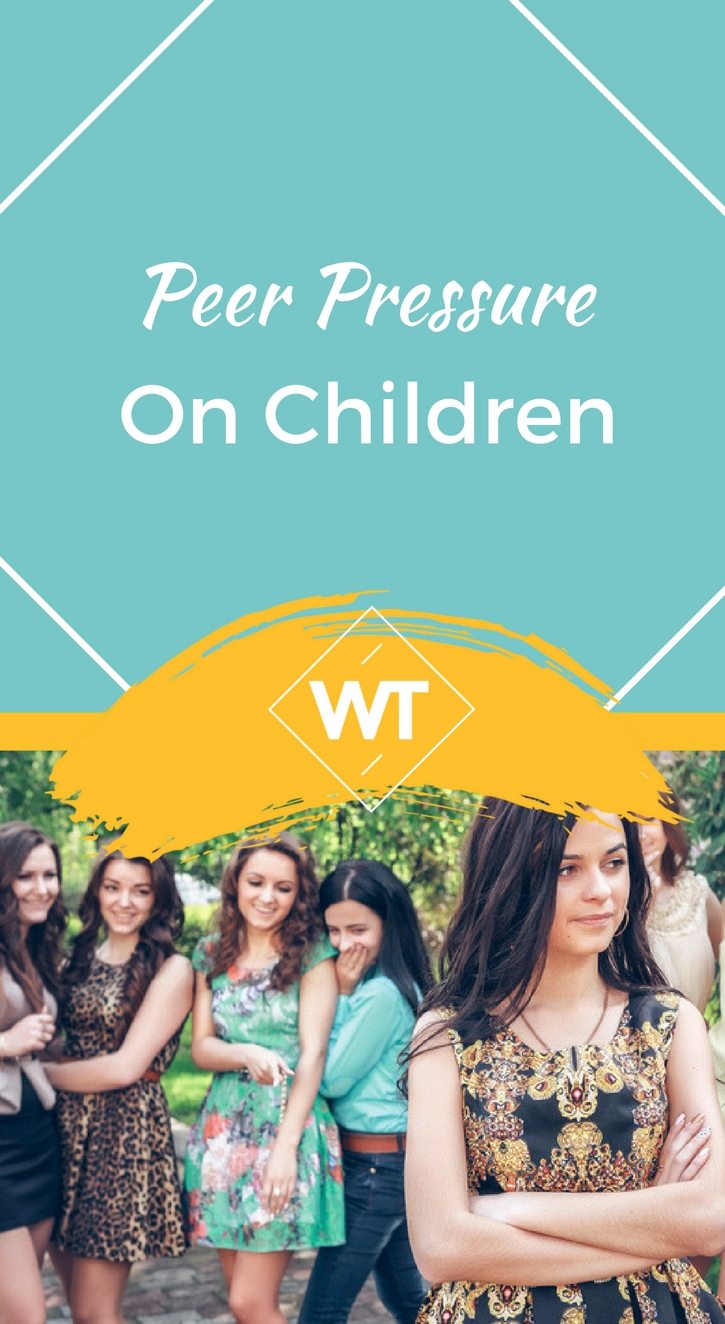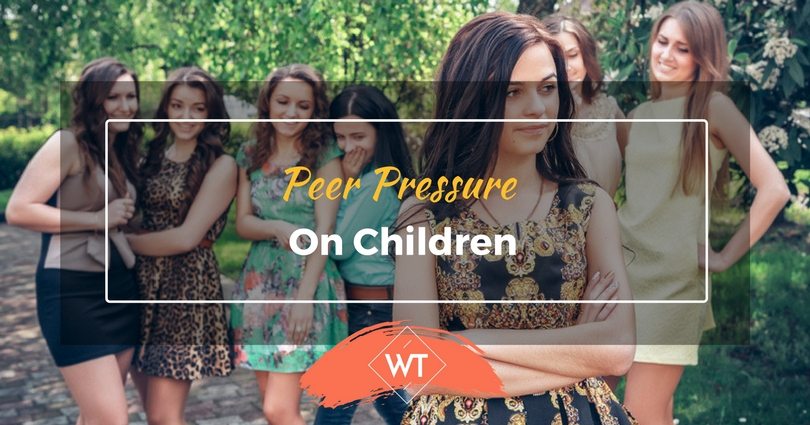Peer Pressure on Children

 Peers, pals, and buddies—whatever names you may give them—friends, are an important part of our lives. Peer pressure on teenagers begins when children start interacting and spending time with other children of their own age group.
Peers, pals, and buddies—whatever names you may give them—friends, are an important part of our lives. Peer pressure on teenagers begins when children start interacting and spending time with other children of their own age group.
Positive peer pressure allows you to compare with your friends in a healthy way, through which you can get inspired to improve your personality. When children are born, their only connection with the world is their family.
But, as they start growing up and start moving out of the house, they come in contact with other children of their age. In school, they spend time with other children and make new friends. Slowly, these friends become an integral part of their daily lives.
Case Study
Sia is a 6-year-old girl and is a darling daughter of her parents. Her whole world revolves around her parents. She has joined a formal school recently and now she spends a lot of time in school and has started making friends.
Some of them even live in the neighborhood and meet her in the park in evening.
Sia’s conversations with her parents now are focused on her friends. Her mother is finding it a little difficult to adjust with this new change as a lot of Sia’s choices and preferences are also influenced by her friends.
Introduction
Most of the time, peer pressure on children influences them to change their attitudes and values so as to conform to group norms. Children make friends and their views and choices are hugely influenced by them.
They want the same kind of clothes, toys, and stationary that their friends have. Older children get influenced by their friends at a different level. At times, because of peer pressure, children are forced to make choices that are not wise and can have a negative effect.
When such things happen, PEER INFLUENCE becomes PEER PRESSURE. At times, peer pressure becomes difficult to handle because at a young age, children get easily influenced by their peers and then they think only their friends are their well-wishers.
Children also refuse to listen to their parents if they advise them about something. This causes problems in a Parent-Child relationship also. Parents have to be very careful and cautious to handle peer pressure in the right manner.
- Peer pressure mostly starts at school. When your child comes home and talks to you about their day at school, listen patiently and with interest so that you know about your child’s friends and their interactions.
- Develop self confidence in your child. Listen to your children and let them decide for themselves sometimes. Children with self confidence are less affected by their peers as they are sure of what they are and what they want.
- Know your child’s friends well and how they interact so that you can tackle the problem effectively.
- Encourage your child to take part in extra-curricular activities like dance, music, debate, sports. This will develop a skill in them and they will utilize their time and energy in learning something new.
- Talk to your child openly about peer influence and teach them to say ‘NO’ to their friends, politely but firmly, in case of unfair and unjust demands.
- Talk to your child’s teacher for handling difficult situations or even ask for the help of the school counselor if required.
- Become your child’s role model. Children learn by watching their elders. When you face a pressure situation, handle it like you want your child to handle peer pressure or other pressures in life.
Conclusion
Most children are influenced by their peers in some way or the other. Inculcate the skill of handling such pressure situations in your children. Be a friend to them so that they can discuss anything with you freely.
Make peer influence work for you positively by inspiring your child to be like a friend who is doing some good or noble work. Take these small steps towards building your child’s confidence.
Help them learn to deal with pressure situations, make them understand and differentiate between their right and wrong choices in life and nurture them into better and strong individuals.
In order to overcome the peer pressure on children, they must learn how to filter the suggestions they receive from their friends on daily basis instead of accepting them without questioning.








Leave a Reply